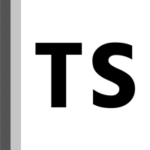Hedge funds are paying a high price for manual processes and legacy IT infrastructures, according to new analysis from TradingScreen, a provider of software-as-a-service (SaaS) offerings for transaction processing.

Grygo is chief content officer for FTF.
The research indicates that hedge funds “are absorbing a punishing $8 million annual hit to their assets under management (AUM) due to high levels of manual processes and outdated trading systems that are causing delays in sending orders out to market,” according to TradingScreen. “A typical mid-sized long/short equity hedge fund ($5 billion AUM) wastes, on average, 2.5 hours per day dealing with 200 orders.” This is largely because of “poor system integration and manual steps to create, validate, and execute orders,” according to TradingScreen’s research.
The integration problems cause “delays in processing the order; from ideation to execution to booking. Lack of investment into these systems has rendered them slow and reliant on user intervention to re-key information that could be easily automated, both pre- and post-trade,” according to TradingScreen.
“By the time traders and portfolio managers have physically entered this information into their systems and sent orders out to market, prices may not have moved in their favor,” according to a statement from TradingScreen.
For example, a hedge fund that is trading American International Group Inc (AIG) “with an order size equating to 2 percent of the stocks ADV ($6.8 million), the cost of being out of the market due to a 15-minute order delay was 16 basis point (bps) — which is more than five times the average brokerage commission cost on an order,” according to TradingScreen.
“With a second bout of volatility potentially around the corner, trying to find a match for their larger orders continues to present major headaches for hedge funds. The faster they can analyze the potential market impact; the faster these orders can be sent out to market, and costs savings opportunities can be realized,” says Surika Vosloo, European product manager at TradingScreen, in a prepared statement.
“With i nvestors currently scrutinizing every penny, the last thing any hedge fund manager needs is to be let down by clunky systems struggling to keep pace with a wide variety of order workflows and execution decisions,” Vosloo says.
nvestors currently scrutinizing every penny, the last thing any hedge fund manager needs is to be let down by clunky systems struggling to keep pace with a wide variety of order workflows and execution decisions,” Vosloo says.
The TradingScreen research results coincide with efforts by hedge fund managers looking to make sense of the mid-March 2020 COVID-19 induced volatility on global financial markets, “ahead of a potential second wave in the months ahead,” vendor officials say.
As markets continue to be volatile, “no hedge fund manager wants to be offloading, for example, a large block of FTSE 100 stocks without the required care and attention the order demands. The trouble is, as our findings show, time is quite literally money,” Vosloo says.
Need a Reprint?